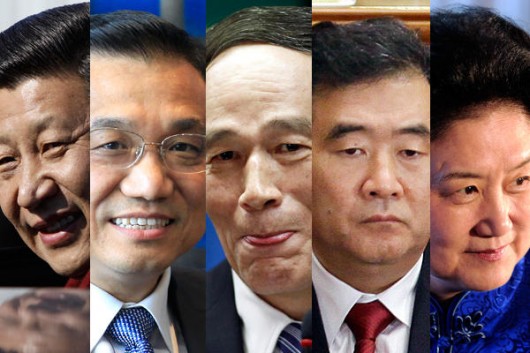
Why is China threatening to expel foreign correspondents? Old-fashioned intimidation, says the New Yorker’s Evan Osnos, still writing incisively in absentia. (A lesson for you, China: journalists can churn even when they don’t live here.) His latest analysis of China’s ongoing crackdown on media is worth a complete read, but let us highlight this paragraph:
China is gradually losing interest in soft power. The Party spent much of the past decade seeking to project a more attractive and welcoming image to the world; it placed billboards in Times Square, expanded the reach of its news outlets to broadcast more of its views to Africa and Latin America, and built hospitals, roads, and soccer stadiums in developing countries. Those efforts will continue, but the leadership is signalling that it has concluded being liked is less important than simply surviving. I spent some time with a senior Chinese diplomat recently, and when I asked what motivated the threat of expulsion, the diplomat said that the Times and Bloomberg were seeking nothing short of removing the Communist Party from power, and that they must not be allowed to continue. That argument surprised me: I had expected a bland procedural defense—this was a blunt expression of fear.
And the kicker:
The new generation leading China fears that the effort to itemize its financial gains is a story so deep and dangerous that it is worth sacrificing China’s broader goals, at home and abroad, in order to prevent it from being told.
Perhaps this new generation of China’s leaders just needs better accountants. Preposterous suggestion? Eh. cf. Let’s kick out foreign journos instead!
The Meaning of China’s Crackdown on the Foreign Press (The New Yorker) (Image via)
Previously: On the New York Times’s Future in China

















































Naturally.
Care to guess how many connected, senior level commies and their families have profited obscenely since the early 80s (not even to mention 1949)? Of course they’re scared shitless should they be outed!
And the west is just as complicit in assisting the thievery by harboring their filthy money in property, “investment visas” and little darlings attending elite schools…
Hear hear.
Corrupt officials will put their own needs ahead of those of the country as a whole seven days a week and twice on Sunday. Just look at all the American corporations and politicians who put their own economic profits/political survival ahead of what’s best for the USA. Does anybody really think Chinese leaders are any different?
Or to do a reverse Spock, “…the needs of the one outweigh the needs of the many”.
What is the concrete basis for the assertion that China is “losing interest in soft power”? There is no overt evidence. the reality is that the Chinese may be assessing the effectiveness of their soft power strategy to date so that it can be fine tuned.
There’s also the possibility that they’ve just given up trying to use western media outlets for that approach, given how partial they’ve proved themselves. The Xinjiang riots in particular were a low point for UK and UK reporting – you could have been forgiven for believing that it was security forces slaughtering Uighurs instead of Uighurs setting on their neighbours.
Why would the PRC government reinforce failure?
Obviously China has been trying to kick out 老外 for quite some time now. Get used to it.
Oh wait, this isn’t the ‘How much money do 老外 make in China?’ post? My bad…
“China is gradually losing interest in soft power.” (Evan Osnos, above)
I beg to disagree. Quite the opposite. What Osnos doesn’t seem to get is that China has realized that reporters for NYT and Bloomberg cannot easily be exploited as conduits for expanding that power, that’s all.
For my blog, I regularly follow policies relating to China’s ethnic minorities. The PRC central authorities are beginning to spend big money to publish books and produce films about their 55 officially designated ethnicities, and recently a fund has been established specifically to encourage translators — including foreigners — to promote the translation and publication abroad of works by non-Han authors. The goal: to create the impression that China’s minorities are doing quite well, thank you, despite what you may have read about crackdowns in Xinjiang and Tibet.
China has not grown disinterested in soft power. It has simply realized that to expand it, it may be wiser to: 1) Use or create its own channels (new TV, radio and Internet-based platforms) rather than try to manipulate foreign reporters who work in China; and 2) To punish Western media for their bias by gradually forcing knowledgeable reporters to leave China.
China’s ethnic nationalities just dance, sing and f**k. That’s all there is to know.
~大万克, Vice Propaganda Minister
Hear hear.